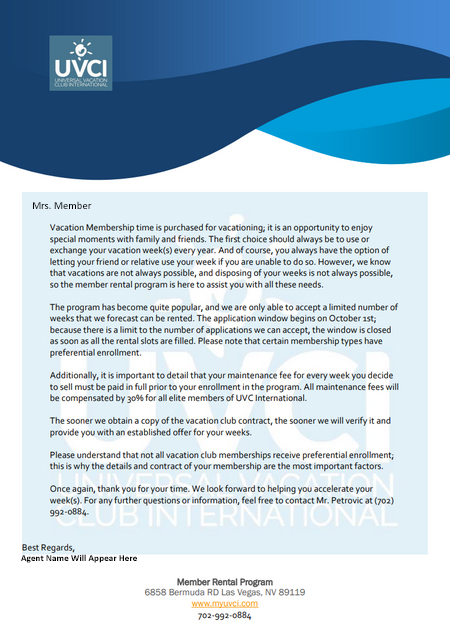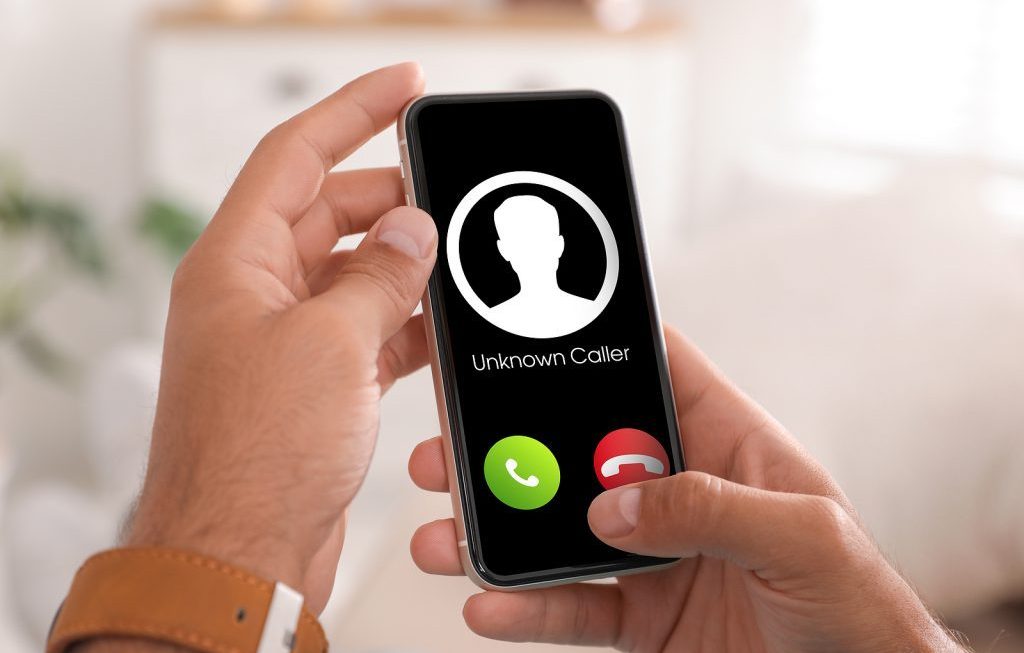Mexico is one of the top travel destinations in the world, adored for its amazing weather, breathtaking landscapes, stunning beaches, and a wonderfully rich cultural heritage of music, art, cuisine, and beautiful traditions. There are so many fantastic destinations in Mexico to explore and owning a vacation membership with the club gives you the opportunity to visit some of the most spectacular beach destinations in Mexico. Our luxury resorts in Puerto Vallarta, Cancun, Los Cabos, and many other idyllic locations can be your home away from home for years to come.
Unfortunately, vacation property owners have been popular targets for scammers in recent years. Con artists are getting increasingly creative in how they attempt to cheat vacation property owners and even try to impersonate the clubs.
This article discusses how to identify and avoid vacation ownership scams and gives you more information on the latest ‘unused vacation week’ scam.
Beware of the Latest Scam
Member Rental Program Scam by Resortcomuvci.com
It has come to our attention that starting this year, some members have been receiving fraudulent emails from the domain name resortcomuvci.com. Even when we close the fradulent domains, the scammers open another one with similar words and phrases to continue their scams. These emails mimic the legitimate company emails by using the same logo. However, upon closer inspection, the address is incorrect (6858 vs. 6850) and the listed phone number is not ours.
The information contained in the attachment sent by the fraudulent company outlines the steps that members need to take to enroll in the Member Rental Program. The scammer made paperwork that looks like they work for the Club, but it is a scam.
Below is a preview of what this scam letter looks like.

Though the differences are subtle, it is clear that the emails from resortcomuvci.com are for one purpose only – to commit fraud. These con artists have taken it to the next level by impersonating our company. We understand that most of our members won’t immediately be able to notice the difference initially when they receive an email “from the Club”, but the content of the letter will likely raise a red flag or spark a feeling of suspicion. Listen to your first instincts.
You can always compare our newsletter or other legitimate correspondence emails from us to identify any discrepancies including business address, phone number, website, or email address.
If you are unsure if an email or cold call is actually from us, please contact Member Services immediately at 1-800-852-4755 or memberservices@resortcom.com. We are always here to safeguard your membership. The last thing we want is for any of our members to be a target of a scam. By staying vigilant, you can avoid falling prey to scams that are making fraudulent offers.
Any type of promise for higher-than-normal rental rates is a red flag, and all members should be vigilant about confirming any offers and the companies offering them – even if they claim to be the club. If you have any doubt about correspondence from the club or any of our affiliates, please do not hesitate to contact member services at 1-800-852-4755 immediately to confirm the origin of suspicious cold-calls or emails. Taking the time to double-check suspicious offers can save you a lot of money and stress!
Remember: UVCI, TAFER Residence Club, and the Villa Group will never contact you to sell, rent, or purchase your vacation ownership. If you are approached about this, someone is attempting to scam you.
How Does This Member Rental Program Scam Work?
Someone by the name of Marko Petrovic has been sending fraudulent emails to some Club Members from the domain name resortcomuvci.com, which is a fraudulent company claiming to be the ‘UVCI Member Rental Program’. This particular scam is an attempt to get members to put their unused vacation week(s) in their scam of a member rental program which, in reality, does not exist.
The email includes an attachment with a piece of communication outlining the ways in which Club Members can turn over their unused vacation week(s).
As a vacation club owner, your membership legitimately provides the option to rent out your vacation week(s) if you are unable to use it through our Member Rental Program. This program has been designed to assist you by partially offsetting your maintenance fee expense. The program is a service we offer our members to avoid any vacation week from going unused if the availability is there.
In the case of this scam, people claiming to be from UVCI attempt to convince members to relinquish vacation weeks to their rental program, promising to rent them out at high rental rates. Unfortunately, the member never sees any money from this transaction.
With legitimate-looking emails coming into your inbox, it can be easy to believe what you read. These fraudsters create fake websites that appear legitimate to further fool people. When they get caught, the website is removed and they often create a new fake website to keep scamming others. So, it’s up to you to familiarize yourself with the latest scams going around in the vacation property industry and to always follow your intuition if you are suspicious of wrongdoing.
By being aware of the different tactics fraudsters are using and also taking the time to confirm who you are dealing with (and why), you can avoid getting caught up in their schemes. The best way to prevent falling prey to their devious tactics is to confirm the business proposing their services or a specific offer is indeed legitimate. Above all, ask lots of questions, and don’t ever share any personal information or pay money upfront! 
When to Be Suspicious of a Scam – 5 Red Flags to Look For
Below are a few commonly used tactics by con artists and scammers, we hope you find this information useful.
Red Flag #1: If you’re receiving frequent unsolicited phone calls from strangers attempting to sell you products or services that sound irresistible and too good to be true, it’s probably a scam.
Red Flag #2: If you feel like you’re being bullied or guilted into buying a product or paying for service you don’t want quickly, without time to think about it, then whatever they are selling probably isn’t legitimate and they don’t want to give you time to confirm its legitimacy.
Red Flag #3: Any suspicious caller that claims they work for a government agency without any real proof should be regarded as a fraudulent caller.
Red Flag #4: If you are receiving automated sales calls from companies you have never heard of, you’re probably being targeted from a scam company.
Red Flag #5: If you’re asking a lot of questions (which you should always do) and the person who called hangs up abruptly – this is their admission that they are up to no good!
Red Flag #6: Wiring any money of any amount to a bank account “outside of the United States” for any reasons related to your membership with us, should be RED FLAG. Please contact Member Services at 1-800-852-4755 to inquire about any request to wire money BEFORE you send anything. 
Common Scammer Tactics to Be Aware Of
Scams can take many forms, tricksters may contact you via cold calls, emails, or letters in the post – and usually, the offers they’re promoting are too good to be. Most scammers come up with clever offers to convince you that you can make quick and easy money if you enlist their services “today”! They apply heavy pressure to make a quick decision and pay quickly so you don’t have time to second-guess yourself.
Here Are Some Of The Most Common Tactics Used By Fraudsters:
-
Creating A Sense of Urgency
An offer that pressures you into making a quick decision is usually a scam. Legitimate companies will provide you with ample time to consider their offers.
-
Catching People Off-Guard
Catching unsuspecting people off-guard is how con artists are successful. If they ask for personal information such as account information before starting the conversation, this should be a huge red flag. UVCI, the Villa Group, and TAFER Residence Club will never call you and ask for account information unless you have called us first.
-
Misrepresentation
Savvy con artists will misrepresent themselves and will go as far as creating fake websites that look legitimate. Be sure to do your due diligence to confirm the person and company you are dealing with is legitimate.
-
Persistence
It’s not unusual to receive several unsolicited emails and phone calls every day to create a sense of importance and urgency.
-
Pay Up Front
If they know you are trying to sell your vacation ownership because they’ve seen your listing somewhere, they will claim to have a client willing to buy it. But the catch is that you have to pay money before getting the contact information for the buyer. And, in most cases, the buyer doesn’t exist.
-
False Promises
Most scammers will make false promises and guarantee different offers and services to entice you to pay for things you don’t want. 
How to Avoid Falling Prey to Scams
Don’t forget that being a Club Member has many benefits, but it’s important to stay well-informed and exercise caution so you can stop tricksters in their tracks. Follow the tips below to protect your vacation ownership property and continue to enjoy all of the great benefits that vacation ownership has to offer.
Follow these tips:
- Stay informed about the latest vacation ownership scams.
- Don’t trust offers from companies that promise they can help you exit your vacation property ownership.
- Be wary of anyone promising to buy your vacation ownership for more than you paid for it.
- Never share personal information with unknown entities or people.
- Only pay for services after they have been completed, not before.
- Never send a wire transfer after receiving an unsolicited email or telephone call since it is much harder to trace if the company turns out to be fraudulent.
- Consult trusted legal or industry experts before making any decisions or paying any money.
- Research the business online to confirm whether or not it is a legitimate company/person.
How to Report a Scam
In the event you have been contacted by a fraudulent resale or exit company, report the individual and company to the following agencies:
- The FTC at ReportFraud.ftc.gov or www.ftccomplaintassist.gov
- The State Attorney General office in the state where the vacation property is located
- The Better Business Bureau (BBB)
- Member Services: 1-800-852-47552 or email memberservices@resortcom.com.
- FBI – Internet Crime Complaint Center www.ic3.gov
- International Consumer Protection and Enforcement Network: www.econsumer.gov/en
Please Note the Following
-
Security of Private Information Is Important to Us
With decades of experience in operation and thousands of happy members, your personal information is safe and secure with us. Our company policy is that we do not sell any personal information to third parties. We work hard to safeguard and protect your private information at all times.
-
Working Together, We Can Prevent Scams
Our members happiness and satisfaction are our primary goals. We strive to provide members with a memorable and unique luxury experience in Mexico – aka paradise – that’s created with superior customer service and a 5-star resort experience.
We don’t take your membership for granted. As part of our commitment to you, we will ensure that you receive timely updates and essential information to safeguard your investment and maximize the benefits of your membership.
Feel free to contact us at 1-800-852-4755 or memberservices@resortcom.com if you have been approached with a potentially fraudulent offer. Together with law enforcement, we will prevent scammers from preying on people and protect the vacation property industry.






Great article and I have received many calls as described above. I have a follow-up question re this particular scam which I receive weekly about:
In the case of this scam, people claiming to be from UVCI attempt to convince members to relinquish vacation weeks to their rental program, promising to rent them out at high rental rates. Unfortunately, the member never sees any money from this transaction.
How is money collected for this scam – do they ask for funds upfront in order to be a part of their ‘rental program’? When do they ask for money in this particular scam? Thank you.
Hi Will,
Thank you for reading our blog and submitting your question.
Yes, in the case of this particular rental program scam, the scammers are asking for the funds up front (prior to participating in their ‘rental program’).
Hope this helps!